The pieces are still on the board, and so is the magic.
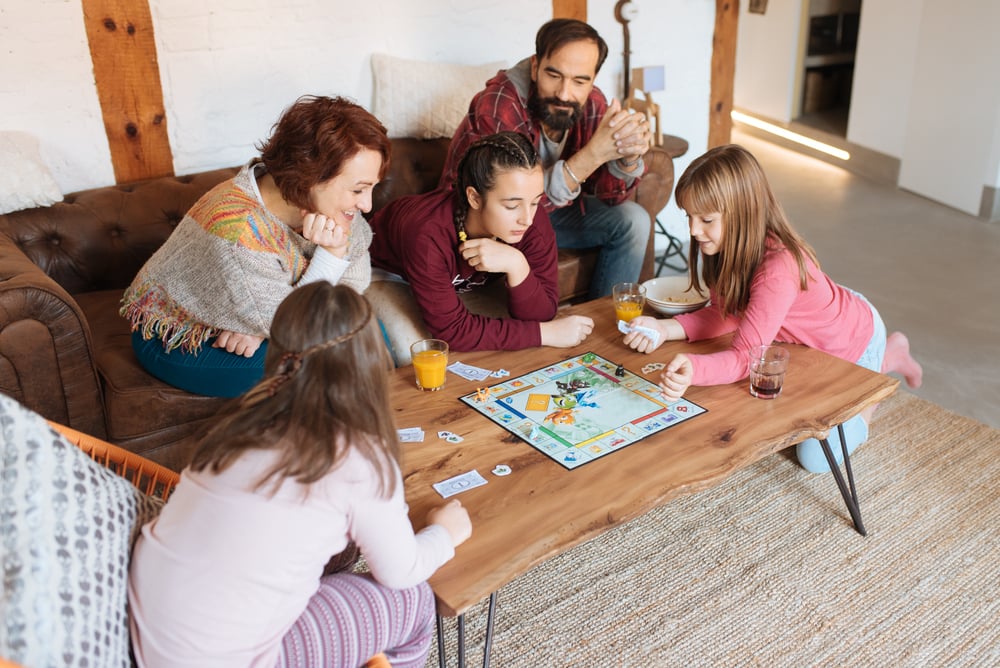
Some games feel like a warm memory frozen in time. Board games have that unique power to gather generations at the same table, no matter how far apart we drift into screens and solo entertainment. Video games may be flashy and immersive, but they rarely leave space for a shared laugh across three generations or a lighthearted grudge that lasts until next Sunday’s rematch.
These classics have aged with us, but not out of us. Their tactile nature, the luck and strategy, the silly rivalries and suspense—they don’t just create fun, they build connections. For families that still make time to sit together around a physical table, these board games prove something important: a simple box of cardboard and plastic can still outmatch a glowing screen when it comes to shared joy.
1. Monopoly turns game night into a hilarious battle of egos.
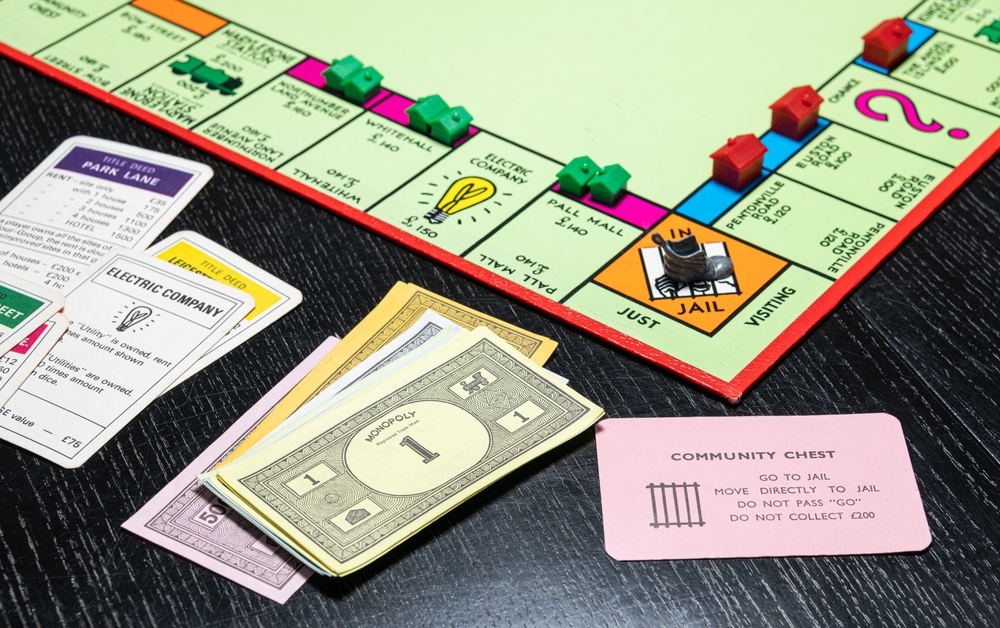
It’s hard to beat Monopoly when you’re looking for a mix of competition, chaos, and pure nostalgia. This isn’t just a game—it’s a full-blown family event that tests your negotiation skills, patience, and capacity for holding a grudge. One moment you’re raking in rent from Boardwalk, the next you’re begging Grandma for mercy so you don’t have to mortgage your last property. It’s theatrical, it’s unpredictable, and somehow, it never gets old, according to Brain Game Publishing.
What keeps Monopoly timeless isn’t just the gameplay—it’s the way it mirrors family dynamics in the most ridiculous ways. You’ll quickly find out who’s a financial shark, who’s sneakily generous, and who will absolutely never trade you that railroad. Between the jokes about going to jail and the long-winded arguments over free parking rules, it creates shared memories you’ll retell for years. No video game matches the weird joy of watching Aunt Susan gloat for an hour straight.
2. Scrabble shows you who’s secretly a vocabulary genius.
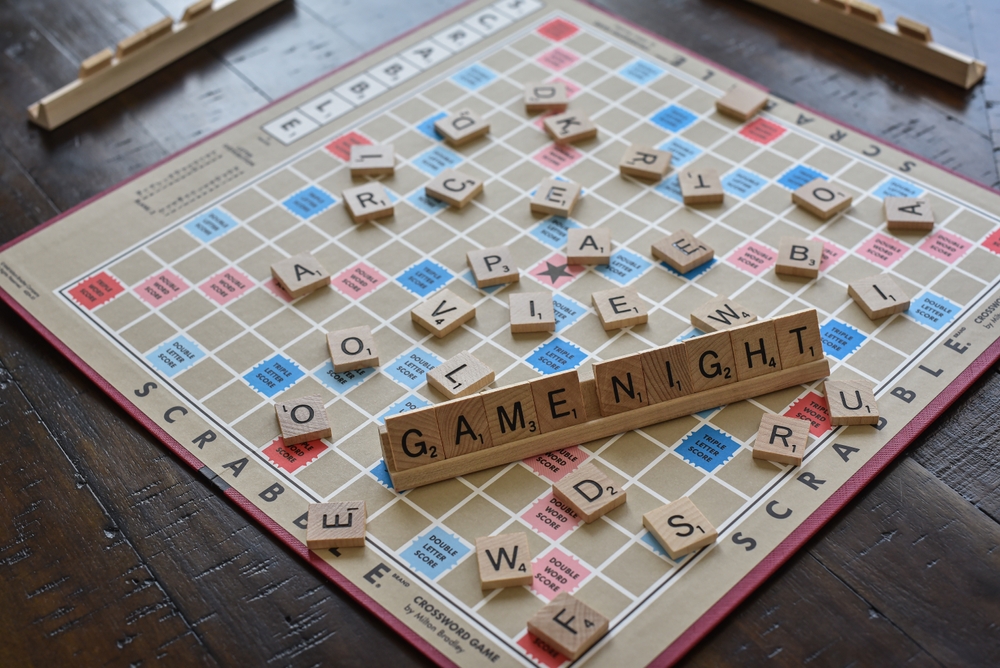
Scrabble is the sneaky brainiac of the board game world. What starts as a chill spelling game quickly morphs into an intense battle over obscure two-letter words and last-minute triple word scores, as mentioned in Reader’s Digest. It’s quiet, yes—but the tension is real. Nothing says “family bonding” like someone using “qi” on a triple and ruining your carefully planned “quartz.”
Beyond the competitiveness, though, Scrabble is an equalizer. Grandma’s got the old-school vocab, your cousin knows internet slang, and your little brother just spelled “butt” and thinks he’s won the game. It’s funny, challenging, and quietly educational, even if nobody will admit they’re learning. The best part? There’s no screen in sight, and yet everyone’s locked in, phones forgotten, minds working, laughs shared. That’s the kind of win modern games can’t claim.
3. Clue makes everyone feel like a detective in a murder mystery.
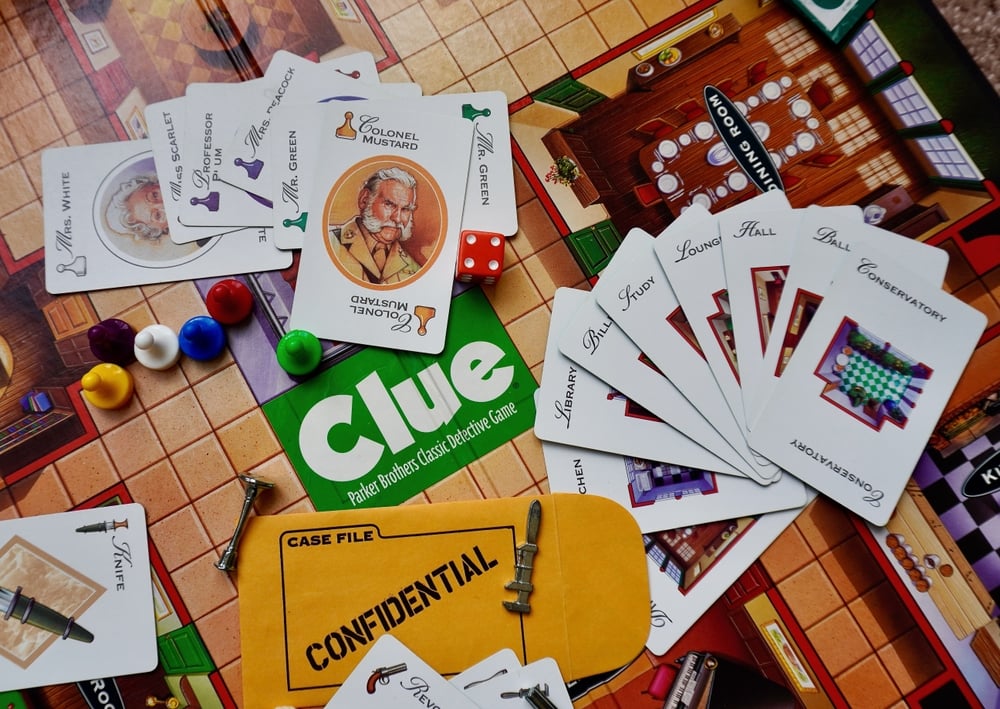
Clue pulls you in like a good old-fashioned whodunit. Was it Miss Scarlet in the library with the candlestick? Everyone’s got theories, suspicions, and a little flair for drama. As the mystery unfolds, so do the personalities at the table—someone always goes full Sherlock, someone else blurts out guesses, and someone’s clearly bluffing with every move.
What makes Clue magical is how it builds suspense while keeping everyone equally involved. You’re not just moving pieces; you’re making accusations, piecing together puzzles, and secretly hoping Uncle Bob didn’t just outsmart you, as reported by The Good Trade. There’s a special kind of joy in watching a ten-year-old confidently declare who did it, only to realize they misread the envelope. It’s lighthearted mystery, perfect for sparking conversation and laughter.
4. Sorry! brings out the playful vengeance in everyone.
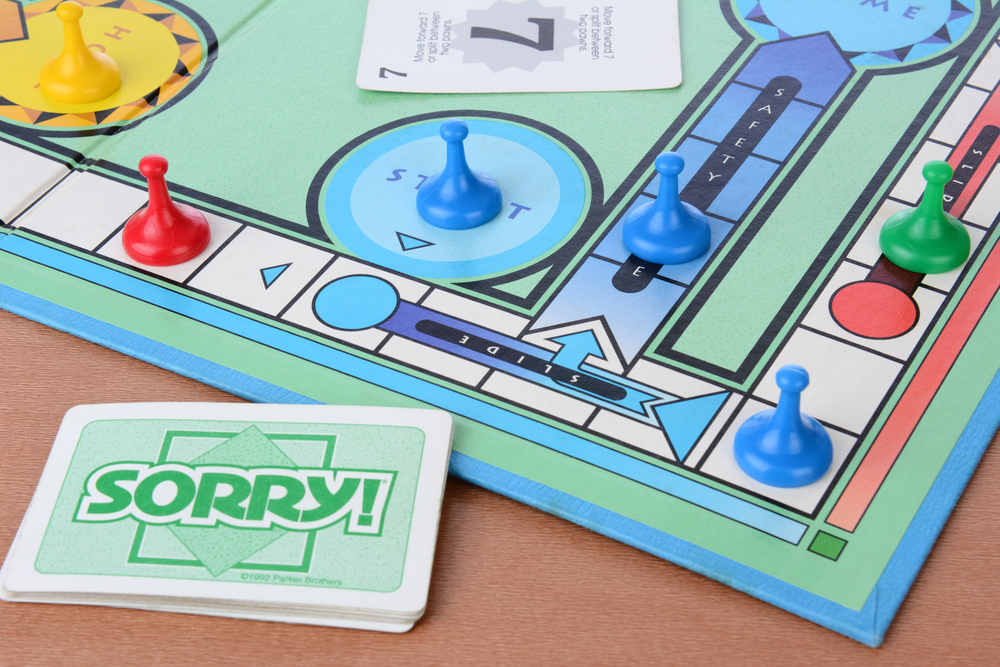
Sorry! might look innocent, but it’s packed with the kind of gleeful payback that keeps families playing for hours. It’s one of the few games where yelling “Sorry!” is never actually sincere—and that’s half the fun. Sending someone’s pawn back to start feels a little evil, a little hilarious, and absolutely necessary if you want to win.
What makes it great for families is that it’s fast, easy to learn, and always unpredictable. Kids can beat adults, and no one stays in the lead for long. The plastic pawns clacking on the board, the delighted screams after a revenge move, the pretend sulking—it’s all part of the fun. In a world full of isolated screen time, Sorry! is refreshingly loud, chaotic, and wonderfully human.
5. The Game of Life sparks stories and unexpected laughter.
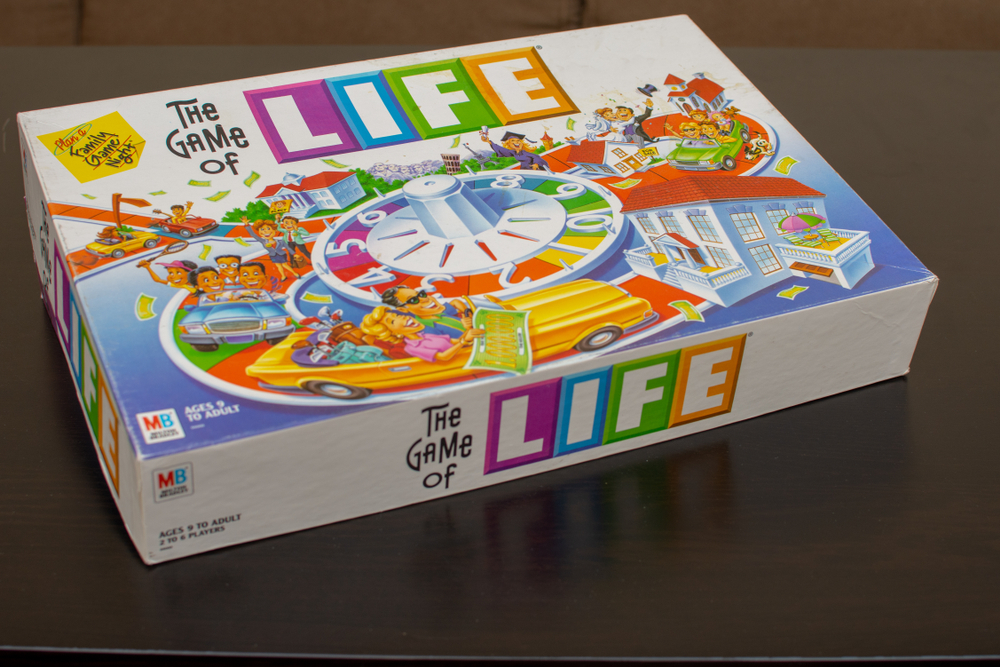
There’s something oddly satisfying about spinning that plastic wheel and watching your little car zoom through life’s big events. Will you go to college, get married, or end up with twins and no savings? The Game of Life turns all those possibilities into a quirky, interactive journey that never quite plays out the same twice.
What makes this one endure is how it prompts unexpected conversations and storytelling. Kids ask why someone picked a certain path, grandparents chime in with their own life tales, and everyone laughs at the absurdity of becoming a rock star with six kids. It’s silly but sweet, and it invites players of all ages to imagine, dream, and reflect—without ever feeling like a lecture. Families bond not just through gameplay, but through all the little side comments and shared “remember that time” moments it inspires.
6. Connect Four is fast, fierce, and surprisingly addictive.
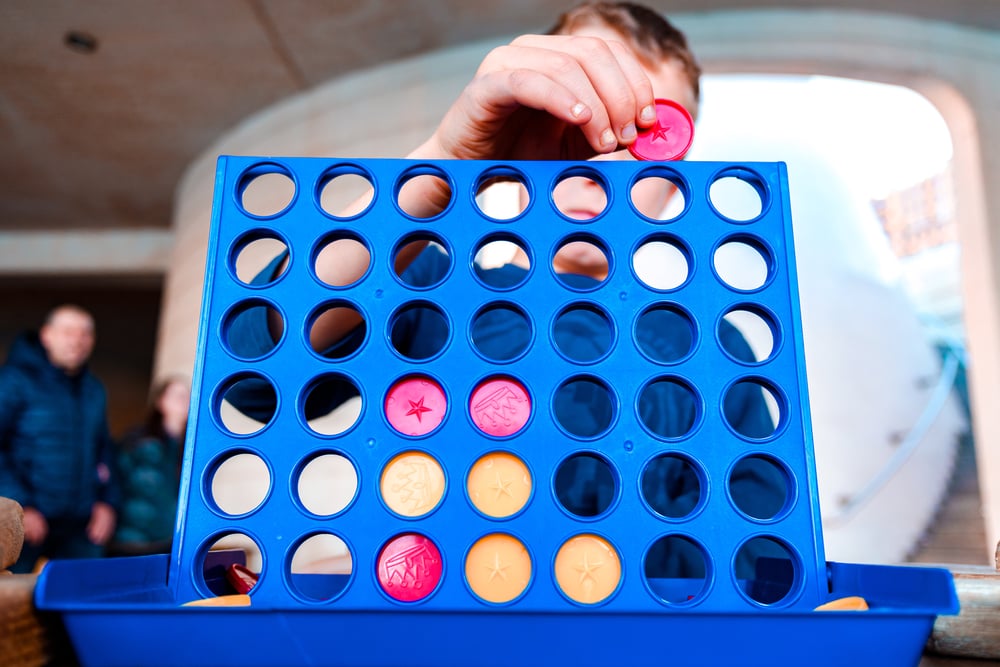
You might think Connect Four is too simple to compete with modern games, but once you start, it’s impossible to stop. There’s something about those red and yellow discs clinking into place that scratches a deeply satisfying itch. It’s quick, it’s competitive, and it turns into a best-of-seven grudge match before you know it.
What makes it such a great family game is its universal appeal. Kids can grasp it instantly, but it’s still tricky enough to challenge adults. Every round feels like a fresh opportunity to outwit your opponent, and the back-and-forth trash talk flows naturally. Unlike long strategy games, Connect Four delivers fast-paced fun that invites rematches and spirited revenge without taking over the whole evening. It’s old-school energy in the best possible way.
7. Battleship delivers head-to-head rivalry with dramatic flair.
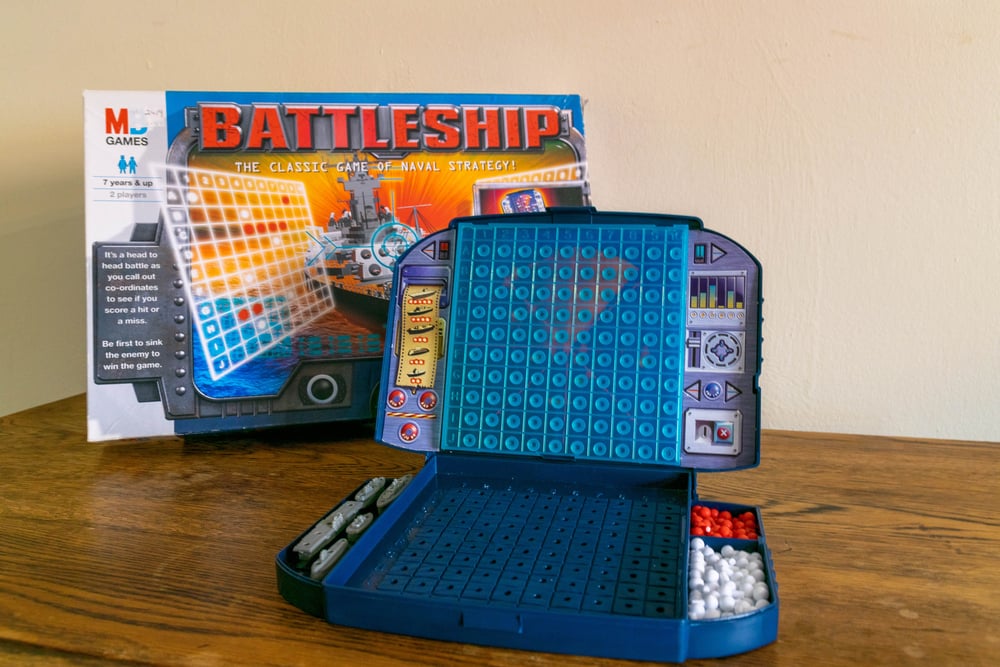
“E4.” “Miss.” “C5.” “Hit!” Those moments build tension like nothing else. Battleship is a direct, two-player showdown that turns family members into naval strategists. You’re both hunched over plastic boards, trying to read each other’s minds while hiding your own precious fleet. The stakes feel oddly high, and every hit is met with either glee or groans.
It’s simple, yes, but Battleship has a dramatic rhythm to it that keeps both players totally absorbed. And it invites spectators—siblings and cousins gather around to cheer or groan, turning a one-on-one match into a whole-room experience. There’s a cinematic quality to the game that no screen can really recreate. It’s just you, your ships, and a burning desire to sink your brother’s last cruiser before he gets yours.
8. Candy Land charms young players without boring the adults.
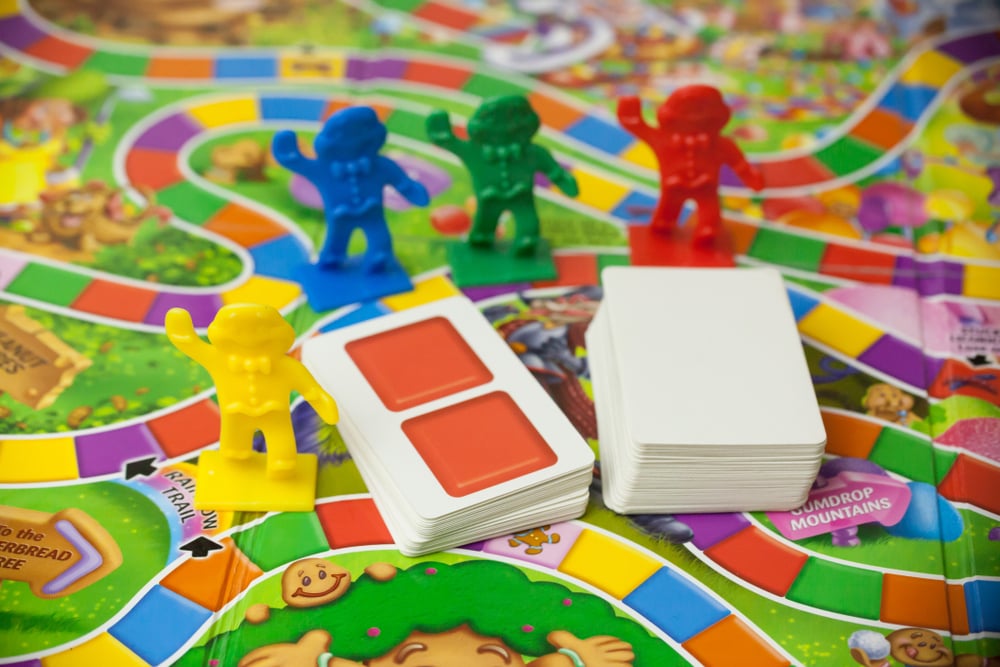
Candy Land’s sugary world might seem too sweet to hold anyone’s attention, but it’s a total charmer—especially for younger kids. The bright colors, whimsical characters, and simple rules make it the ideal game for little ones to feel included. And for older players? It’s a chance to enjoy the silliness, narrate like a storybook, and watch kids light up with every card drawn.
Even grown-ups find joy in its unpredictability. One minute you’re heading to the finish, the next you’ve been banished to the Peppermint Forest. It’s ridiculous in the best way, and the lack of strategy makes it a total wild card. Families love it because everyone, no matter their age or attention span, can play and enjoy without needing to explain the rules ten times.
9. Trivial Pursuit turns facts into family showdowns.
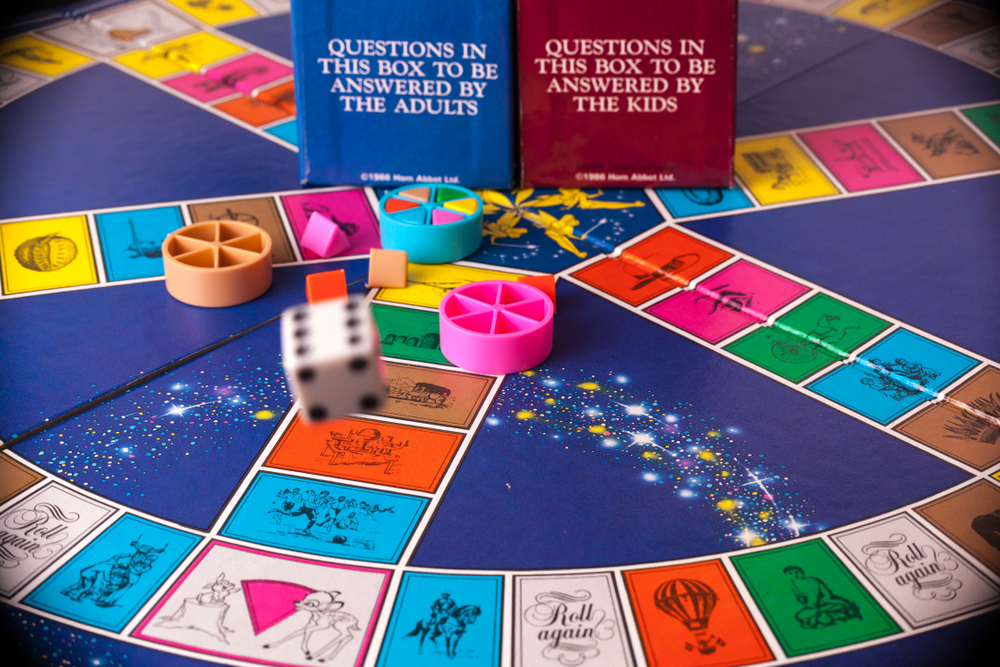
Trivial Pursuit brings out the know-it-all in everyone. It’s the one game where being a history buff, movie nerd, or science geek finally pays off. As the questions roll out, you get to watch each family member light up when their category appears—or squirm when they realize they have no clue about sports trivia.
What makes it such a lasting favorite is the way it sparks conversation, debate, and laughter. Someone always insists a wrong answer should’ve counted, someone else makes up absurd logic to guess correctly, and every pie piece feels like a hard-earned trophy. It’s half quiz show, half comedy act, and fully engaging for players of all ages. Plus, with so many themed editions out there, it never feels stale.
10. Jenga builds suspense with every shaky move.

Jenga’s genius lies in its simplicity: stack blocks, pull them out, try not to be the one who sends it all crashing down. But oh, the suspense! Each turn is its own little drama. You lean in, you hold your breath, and you pray your cousin’s hand twitches just enough to end the game early.
What makes Jenga amazing for families is that it’s physical, fast, and full of laughs. Even watching is a thrill. The entire room goes silent during a risky move, then erupts when the tower finally tumbles. It’s a game of patience, daring, and epic fails—and those are exactly the kinds of moments that bring people together.
11. Uno fuels friendly chaos with every card played.
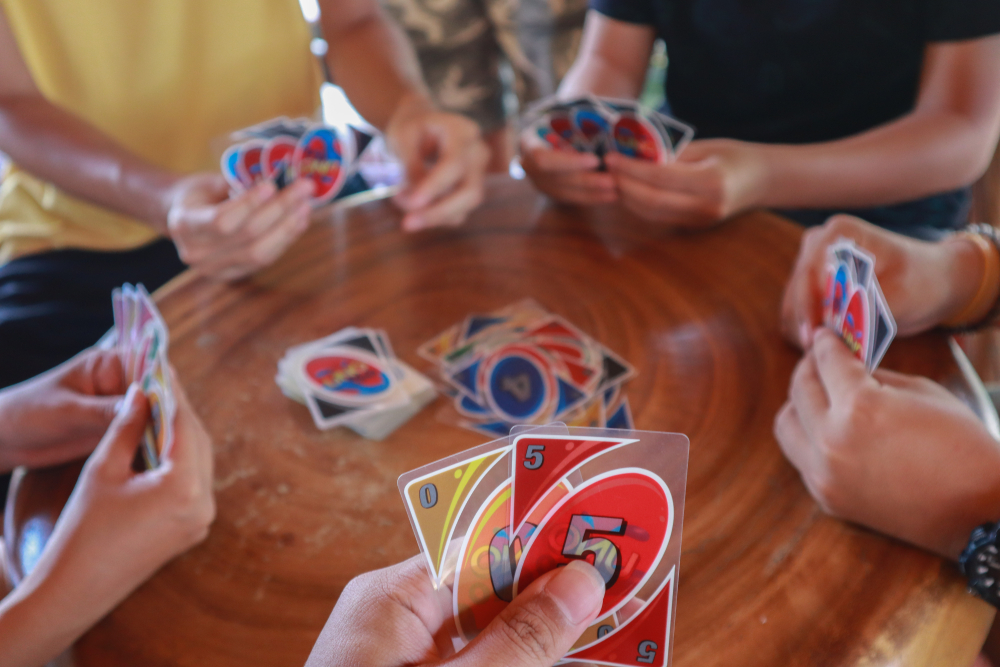
Uno walks the perfect line between strategy and pure, unfiltered chaos. Just when you think you’re about to win, someone slams down a “Draw Four” with a smirk that says everything. It’s the kind of game that makes people cheer, groan, laugh, and beg for a rematch all at once.
Families love Uno because it’s easy to learn but hard to predict. The rules are simple enough for kids, but the surprises make it exciting for everyone. Wild cards, reverse plays, revenge stacking—it’s a card game that rarely goes according to plan, and that’s the beauty of it. Plus, the rounds move fast, so nobody’s left waiting long. It’s pure energy in a deck of cards—and it’s always ready for one more round.
